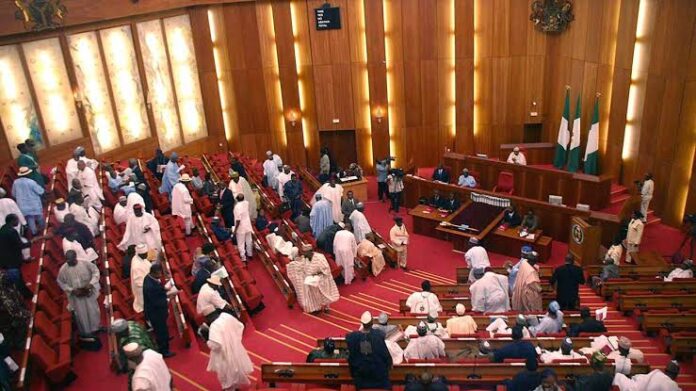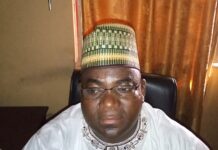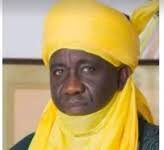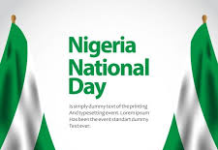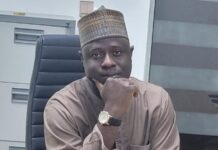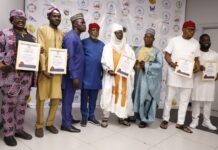What Manna of National Assembly?
Monday P. Ekpe
Federal lawmakers must rise above their perceived self-aggrandisement to achieve pressing national goals, writes Monday Philips Ekpe
The image which the current National Assembly has managed to attract to itself is not complimentary, putting it mildly. It has so far conducted itself as if public perceptions and feelings don’t count. The citizens whose hopes have taken a hit as a result of this situation are those with exaggerated expectations in the first place.
Nigerians have been so serially disappointed by some previous assemblies that the recommended mode to assume in terms of expectancy is neutral. The towering picture in the minds of many people concerning the occupiers of the nation’s highest law-making body is that of men and women who have invested a lot of resources to clinch their seats with the predominant aim of grabbing chunks of the proverbial national cake.
One fact is not easily impeachable, at any rate. The centrality of the legislative arm of government to the survival and flourishing of democracy has been consistently proven. In an ideal environment, that is.
Whether this truth has found rest in the hearts and minds of the legislators, who have been acting in their offices since the inauguration of the 10th National Assembly, remains to be seen. It is too soon to pass informed judgments on their actions and inactions so far, one may argue. But, since it’s never too early to tell if a fowl would grow into a cock or hen, one can at least express discomfort about the tone that is already being set by our federal lawmakers.
The very nature of the nation’s public discourse isn’t favourably disposed to spending enough time on issues that often parade themselves in quick succession. As one topic appears on the heels of another one, the gravity of the former fades away in public consciousness.
Our leaders seem to understand this phenomenon well and gladly utilise it to the disadvantage of probity and justice. No matter how important an incident is, give Nigerians some days or weeks; they would move on either to new subjects or deeper into their own overwhelming private travails.
But we mustn’t forget so quickly the troubling signs that are gradually defining the present crop of National Assembly members since they took their much-touted hallowed seats, particularly the passage of the 2023 Supplementary Appropriation Bill.
In what frame of mind were they when the 2.8 trillion-naira bill was deliberated? On this occasion, I refuse to blame President Bola Tinubu and his team in the executive arm for prioritising additional State House cars, including those of the unconstitutional Office of the First Lady, renovation and construction of new buildings at the official residences of the president and his vice in Abuja and Lagos, and other profligate items. After all, one of the cardinal duties of the legislature is to checkmate the excesses of the first arm, one responsibility that has been regularly relegated and abdicated in Nigeria in recent past.
Besides, ostentation can truly be a taskmaster, a difficult habit to break. Most persons who have found their way into powerful political positions here actually broke ties with poverty before now. Sadly, drawing lines between how they spend their personal monies and government funds is hard in a country that finds it difficult to institutionalise accountability.
Like numerous other Nigerians, I’ve been struggling to understand the rationale for the decision of the federal lawmakers to acquire new SUVs, especially considering the extremely difficult economic conditions prevalent in the country. There’s no need to investigate to reveal that most of the federal legislators either already have the class of vehicles in question or can actually afford them without recourse to the public purse.
Read Also:
And even if they don’t have, rushing into such transactions via a last-minute supplementary budget without any visible thought for the plight of the majority of the people can only be justifiably viewed as emanating from selfishness, insensitivity and callousness. It’s doubtful at this point if the negative impression that has trailed this whole debacle means anything to the 469 distinguished and honourable men and women.
The other day, Honourable Eseme Eyiboh, Special Adviser to the President of the Senate, tried to defend what is clearly indefensible. According to him, “we should be able to encourage the federal lawmakers, just as we encourage the state lawmakers and the members of the federal executive council. If anyone feels that there is an infringement or sharp practice in the way the procurement of the vehicles was carried out, then they should take proper steps towards uncovering it.
One must understand that the vehicle issue has never been directly connected to the lawmakers. The lawmakers have never participated in the requisition, or the tender, or the qualification or payment. No lawmaker participates in each of these processes as it is purely an administrative issue within the bureaucratic arm of the legislature.”
But who, for God’s sake, is splitting his/her hair over the manner of purchase? Some critics have argued about the propriety of importing such a large number of expensive vehicles at a time when local manufacturers are in desperate need of incentives and patronage, a poser that makes a far better sense than debating the transparency of the process of acquisition.
For many, timing and prudence remain the key concerns in this discussion. The Nigerian people would be shocked to learn that the fuelling and maintenance of the motors which have not yet featured prominently might also be drawn from the treasury.
A portion of my piece titled, “Enter the 10th National Assembly”, published soon after the commencement of this legislature earlier in June bears some relevant points worth reproducing here: “This newly-inaugurated Assembly should make conscious attempts to toe more noble, selfless, exemplary and patriotic lines. Luckily, it is dominated by rookies.
The argument that this could hamper legislative proceedings rooted in experience might hold to some extent, but injecting fresh blood into the red and green chambers which are in dire need of innovativeness, pragmatism and agility couldn’t have come at a better time. The citizenry deserves reassurance on the benefits of democracy. It mustn’t be taken for granted. No other leg of government epitomises representative governance than the legislature.”
Could the presence of many fresh persons in the two chambers be partly responsible for the scramble to vote for personal comfort to the chagrin of sacrifice and exemplary leadership? The answer may extend beyond that to include other factors like inability to grasp the true meaning of representation, the very essence of democratic administration.
It shouldn’t matter too much now how the members entered the Senate and House of Representatives, either through the doors or windows. What’s important is to attempt to understand where the populace stands this moment and, at least, be seen to empathise with it. And that’s not too much to ask for.
Tinubu’s government had campaigned vigorously with the “Renewed Hope” label, a very apt slogan, no doubt. Many people couldn’t even afford to hope against hope as the previous regime was winding down.
The few who could muster some faith in the recovery of individual and national wellbeing were convinced by that electioneering jingle. Unfortunately, in the absence of convincing proofs of a brighter today and tomorrow, whatever is left of the vigour to push towards a prosperous future is now largely frozen.
Our lawmakers can and should serve as thawing, healing agents. And urgently too. Hyper-inflation, grossly inadequate jobs, fast-disappearing middle class and under-performing infrastructure have conspired to further complicate the lives of most Nigerians. If the senators and representatives fail to actively confront these monsters, they’ll qualify as another set of Nigeria’s enemies.
Ekpe, PhD, is a member of THISDAY Editorial Board.

